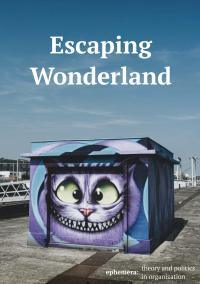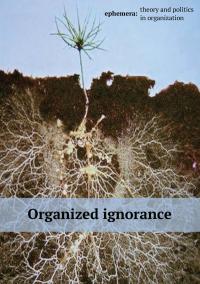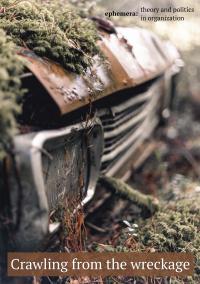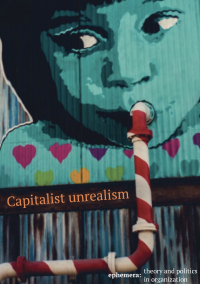CPPE@10: "... you must go on, I can't go on, I'll go on"
Event type

“The halls of academe are beset by exhaustion”, wrote Charles Levin in 1981 while reflecting on the philosophical and political-economic impasses that frame Jean Baudrillard’s attempt at a critique of the political economy of the sign. There already it seemed that philosophy had become a thankless and wearying task. It involves interpreting a world constantly outrunning each and every analysis of it; a world stubbornly concealing itself behind a series of political-economic abstractions; a world revealing itself only as constant and persistent transformation; a world demanding investigation while all the same eluding analysis. Neither today, nor during no more than a few short moments within the last ten years, has this felt much different. How can this go on?
The result is that some academics are regularly succumbing to a cynical disengagement from the world around them. This is perhaps not surprising, considering not only the fate of (academic) philosophy but also the political economy of academic labour – a state of affairs exacerbated over the last decade by the intensified rule of precarity and austerity in the academy. The university is marked by finance not through its abundance but through the limits imposed by neo-liberal governance and audit. To this conditioning the academy is meant to respond energetically not with revolutionary zeal, but with entrepreneurial spirit and a certain business pragmatics – a different constellation of philosophy and political economy. Here the business school has replaced much of the academy and come to financially support most other academic activities. The university goes on – as business incubator.
This demand for investment out of nothing might seem a more wearying predicament than the one diagnosed by Levin. Yet the contemporary university not only produces cynicism and startups – it also produces critiques of cynical reason and students who take to the streets guarded with nothing but the titles of their favourite philosophical works. And there they meet with a wider scene where weariness is equally pervasive yet persistent. Capitalism itself seems weary in that its ideas and institutions have exhausted themselves even as it staggers on, like a zombie. Through financialisation capital has learnt to draw on the social wealth that it hardly bothers to help produce. It is racist but relies on migrant labour; it devours culture but does not want to fund it; it feasts on nature but does not nurture it. Capital’s enclosure and exploitation of cultural and natural commons does not contribute to their reproduction, but exhausts them. The biosphere, most urgently, seems exhausted, human activity having led to the breaching of at least two of nine key boundaries that define what Johan Rockström of the Stockholm Resilience Centre and colleagues call a “safe operating space for humanity”.
Capital goes on. It accumulates because it must. But in this going-on it festers exhaustion and crisis. Or rather: the life that produces social wealth recognises this exhaustion as crisis and turns it into a crisis of capital. Those working and studying in the undercommons of the university recognise that the crisis of the university is tied to a crisis of natural and social reproduction. This crisis manifests itself not only in depression as a weariness of the self or the difficulty of recognising friendship in a hyper-connected world. It also manifests itself in a fear of the future, a worry about the world our children and grandchildren will live in, and for many an insecurity about where our next meal will come from. No wonder we are so anxious! And yet... we go on.
Enter the Centre for Philosophy and Political Economy (CPPE), based at the University of Leicester School of Management. The CPPE is both a product of this structurally produced predicament of weariness, as well as a deliberately collective refusal to succumb to its false consolations. It has, since its inauguration in 2003, encouraged “scholarly discussion of philosophy and political economy and their intersection” along “a model of scholarly cooperation that resists the individualisation of academic activity and the production quotas of academic labour”. That such a Centre should exist within a School of Management stands testament to the relative success of the neo-liberal reformulation of the contemporary university. That such a Centre should continue to groan under the weight of its apparently contradictory location, without collapsing, stands testament to the resolve of its members and, just as important, its guest-contributors and collaborators.
The CPPE is 10 years old this year. We will celebrate this occasion, in the spirit evoked within the above-cited parting fragment of Samuel Beckett’s The Unnamable, by inviting past, present and future collaborators to Leicester to discuss the past, present and future of philosophy and political economy, and their intersection. Potential contributions (papers, panels, performances) to the proceedings should be guided by the themes alluded to in the above.
For inquiries, and to submit an abstract (up to 500 words) for contributions, please contact Matthew Allen or Sarah Robinson before 1st September 2013.
Find CPPE online: website | blog | twitter
[The image above is from Pedro Reyes’ Baby Marx project. Further information on Pedro’s different projects can be found at his home page. You can also follow Pedro on his blog.]
| Attachment | Size |
|---|---|
| CPPE%4010%20call.pdf | 77.06 KB |




